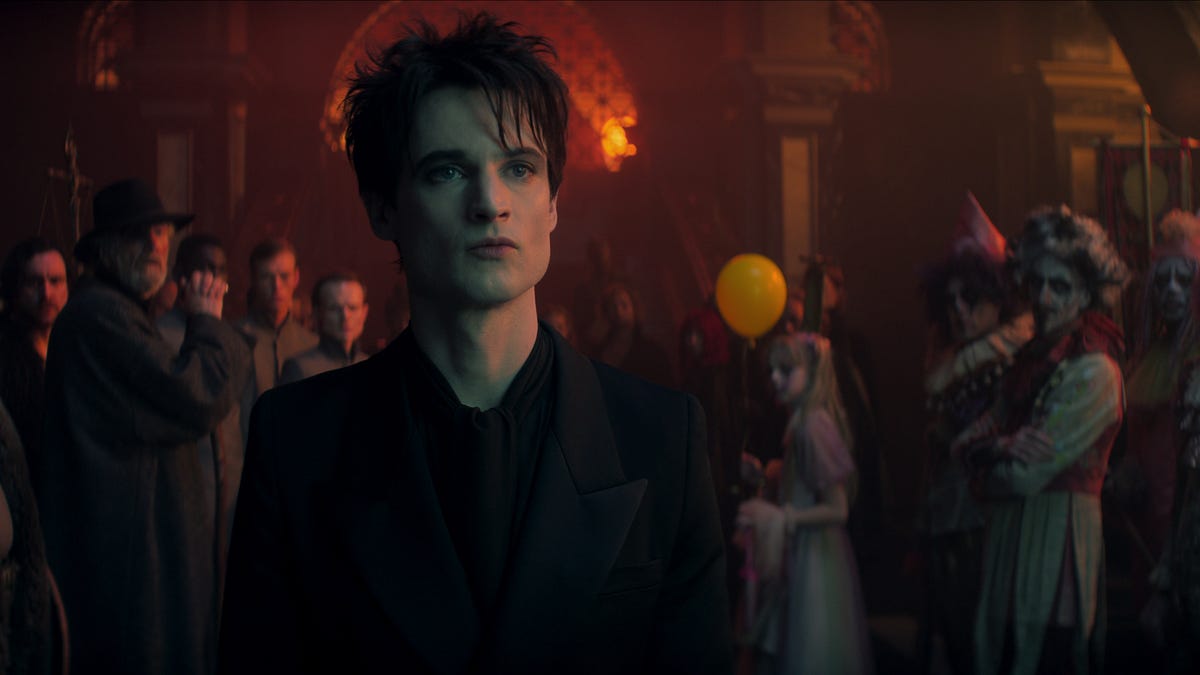Sean “Diddy” Combs faced federal prostitution, sex trafficking and racketeering charges. How his high-profile trial in New York unfolded.
The trial of Sean “Diddy” Combs is over. And the nation could be forgiven for wanting to take a collective shower.
The rapper turned mogul, who faced federal charges on prostitution, sex trafficking and racketeering, was convicted July 2 on two of the five counts he was facing: the lesser charges of transporting individuals for prostitution will spare Combs from life in prison.
As each verdict came in, Combs had his head down in a chair, seemingly praying after avoiding the most serious of the charges. His family stood in the background, clapping and cheering. The defense attorneys hugged each other, and Combs hugged lawyer Brian Steel.
Combs then clasped his hands together in a praying gesture, and turned toward the jury.
The verdict was certainly a defeat for the prosecution and the victims who told their often terrifying stories in open court.
Douglas Wigdor, a prominent victims’ attorney who represented Combs’ main accuser − singer and ex-girlfriend Cassie Ventura Fine − praised his client’s bravery. “By coming forward with her experience,” he said, “Cassie has left an indelible mark on both the entertainment industry and the fight for justice.”
The verdict was some eight months in the making. Back in mid-September, Combs was strolling through the marble-lined lobby of New York’s Park Hyatt Hotel when federal agents swooped in and placed him under arrest. So began the one-time billionaire’s stay in jail and, eventually, his visits to a courthouse in lower Manhattan.
For the past six weeks, a mixed crowd gathered at dawn before the imposing Daniel Patrick Moynihan Courthouse. There were the merely curious, an array of deeply committed Diddy fans, and a sea of fame-seeking influencers, selfie-sticks at the ready, bent on leveraging the trial for personal gain.
Inside the airy courtroom, hushed spectators, including Combs’ mother and six adult children, sat on wooden benches. The accused would occasionally turn to his family, smile, and flash a heart symbol with his hands.
Although Combs spoke infrequently during the trial, mainly whispering to his lawyers, he found a moment to scold courtroom sketch artist Jane Rosenberg.
“Soften me up a bit, you’re making me look like a koala bear,” he said.
It was a rare light moment.
From this chamber poured a seemingly incessant stream of sordid details, discomfiting puzzle pieces that added up to a portrait of a man who used his fame and fortune to reduce his female victims to chattel.
Combs was so obsessed with sex – his staff bought baby oil and other lubricants by the gallons – that arranging such encounters took precedence regardless of where in the world his musical or business engagements took him.
There were tales of constant “freak offs,” days-long, drug-laced sexcapades that found Combs masturbating while escorts had sex with his girlfriends.
There were frequent beatings and hurled objects, many resulting in injuries severe enough to cause bruises and lacerations.
And then the iron-fisted control, which made the women in Combs’ orbit feel they were risking careers and even lives if they spoke out.
This is a horrible man, argued the prosecution, please put him away.
Indeed, this is a horrible man, agreed Combs’ lawyers.
But, they argued, he was being horrible with consenting adults and that is their right.
Ultimately, that reasoning largely resonated with jurors.
Did the Diddy trial help or hurt the #MeToo movement?
Now, the question looms: Might the next Sean Combs be watching this verdict with confidence?
“I expected more to come from this, but juries often do love celebrities,” said former assistant U.S. attorney Neama Rahmani, president of West Coast Trial Lawyers in Los Angeles. “The conclusion seems to be, if you’re an adult, you can consent to whatever you want no matter how freaky.”
Rahmani wasn’t surprised that, facing potential “egg on their face” if Combs got off lightly, prosecutors at the last minute asked the trial judge to instruct jurors not to consider the most serious charges of engaging in racketeering by attempting kidnapping in California and New York, attempting arson in California, and aiding and abetting sex trafficking.
The Combs verdict could well be seen as a setback for the #MeToo movement, which claimed big victories over sexual predators through the convictions of producer Harvey Weinstein, financier Jeffery Epstein and singer R. Kelly.
Absent a harsher sentence for the hip-hop star, Rahmani said “this could mean women will think twice about coming forward and sharing these intimate stories before the world.”
That concern is shared by Ohio State University gender studies professor Treva Lindsey. “We are almost in a backlash moment,” she said. “We’re revisiting how we talk about violence and power and wealth and celebrity, and how to hold people accountable.”
Lindsey said the trial split the court of public opinion. Some felt Combs leveraged his influence to intimidate and coerce women into sexual activities. But others focused on the victims’ texted declarations of obsession with and even love for Combs that were shared during the trial.
“I don’t know that any of these (#MeToo) verdicts have had a big impact on men, especially ones with power,” said Lindsey, author of “America, Goddam: Violence, Black Women and the Struggle for Justice.”
“It’s easy to say ‘Oh, that person is horrible,’ but doing that doesn’t give us a chance to reset our relationship between sexual violence and power,” she said. “The sad thing is, we need these victims to matter.”
Combs still faces dozens of civil lawsuits from men and women who claim the rapper abused them. His fortune, already reduced in half from its $1 billion high, will certainly take further hits due to such cases. But he’ll still be rich and powerful.
In fact, if the Combs affair showcased anything, it was the depths that human depravity can reach when it is fueled by money and celebrity, and aided by an unchecked ego and vulnerable victims.
But the trial also put a spotlight on something far more stirring and hopeful: the unalloyed courage of women speaking their truth out loud.
And it all started with a woman named Cassie.
Cassie takes stand, speaks out
The pregnant woman sobbed. Her long-sleeve brown dress outlined the contours of a body that would soon be giving birth to a third child. A blessed event born of love.
This was Cassie Ventura Fine on the witness stand back in mid-May, early in the government’s case against her one-time lover Sean Combs, recalling a litany of abusive love-less horrors.
There were the sex parties, known as “freak offs,” which found Ventura Fine, a promising young singer, having sex with multiple partners while Combs, who curated the events, pleasured himself in a corner. There were the many beatings she suffered at the slightest transgression, like responding too slowly to Combs’ insistent demands. And there was the time when an escort was commanded to urinate in her mouth.
How did that make her feel, asked assistant U.S. attorney Emily Johnson, as if the answer were in doubt. Still, Ventura Fine seemed to misunderstand its intent and answered, “You can continue. You can go on.”
Asked a second time, she understood the question’s intent. “Worthless. Just like dirt, like I didn’t matter to him. That I was nothing. Absolutely nothing.”
Many trials save their blockbuster witnesses for last. Ventura Fine’s revelations during that first week of the trial represented the prosecution going straight for the jugular.
It was after all her 2023 lawsuit against the rap mogul that arguably launched the criminal case against Combs. Although she quickly settled for $20 million, the suit, with its allegations of drug use, violence and sexual slavery, eventually led to a federal inquiry that culminated in Combs’ 2024 arrest in New York.
Combs’ defense team made it clear their client was no saint. He was a violence-prone man with unusual sexual proclivities, they said.
But that wasn’t on trial, they argued.
Running a criminal enterprise was, and of that their client was innocent, they said. He had fame and power, and willing adults who wanted a part of his success.
This trial, said Combs attorney Teny Geragos, was simply about “jealousy and infidelity.”
And so they painted Ventura Fine as another in a long line of aspiring talents who fell hard for Combs and became vindictive when he didn’t fully return their attention. Bluntly, argued Combs’ lawyers, these women were gold diggers looking to exploit a wealthy man.
So prosecutors asked Ventura Fine if she would give up that $20 million in exchange for never having suffered. The query led to one of the trial’s most powerful moments.
Of course, Ventura Fine said.
She would give the money back if she’d never had to have “freak offs.” She sobbed again. A sob drawn from the deep well of a shattered derailed life.
“I would have had agency and autonomy,” she said, tears streaking her face. “I wouldn’t have to work so hard to get it back.”
Witnesses to rage
He said-she said is the stuff of acquittals, mistrials and hung juries. So prosecutors went out of their way to present witnesses who could corroborate Ventura Fine’s striking allegations of abuse.
Of the slaps, punches and most of all the kicks delivered to the bodies of young women. Of the threats of bodily harm and even death to men who got in the way. Ventura Fine had set the stage for jurors. Now it was time for others to add details to the drama.
They did not hold back.
Dawn Richard, a former member of Combs’ platinum-selling girl group Danity Kane, told the court Combs beat Ventura Fine in 2009 in his Los Angeles home, grabbing her hair and dragging her up a flight of stairs. He was displeased with the way she made his eggs. Combs tried to hit Ventura Fine with the skillet.
“I saw him punch her, choke her, drag her and kick her,” testified Richard, whose own lawsuit against Combs alleges he assaulted and threatened her life. Defense lawyers accused Richard of wanting to gain financially from Combs.
“I just want justice,” she said.
Former model Kerry Morgan once called Ventura Fine her best friend. But that relationship severed after Combs allegedly choked Morgan and threw a wooden hanger that hit her in the ear.
Morgan expected Ventura Fine to defend her to Combs. She did not. “I draw the line at physical abuse,” said Morgan, who ended the friendship after that 2018 incident.
While young women seemed easy prey, Combs and his associates were also capable of threatening big stars. Rapper Kid Cudi, whose given name is Scott Mescudi, took the stand in a black leather jacket exuding quiet defiance.
He had briefly dated Ventura Fine back in 2011, and Combs had been furious. Mescudi’s convertible Porsche took the brunt of that rage. Someone cut a hole in the canvas top and dumped a Molotov cocktail into its soon flaming red interior. Mescudi was livid with Combs. “I wanted to confront him, I wanted to fight him,” he testified.
But Combs often found a way to vanish, either literally or with the help of a coterie of assistants.
One of them was George Kaplan, the rapper’s personal assistant between 2013 and 2015. Kaplan told the court it was his job to enter the hotel rooms used for Combs’ “freak offs” and clean up lakes of baby oil and discard bottles of booze and evidence of drugs.
Nothing was ever reported to authorities, including an incident, Kaplan said, in which Combs beat up Ventura Fine on a private jet.
Kaplan’s testimony was far from just an employee explaining his job. It played to the prosecution’s definition of racketeering and their mission for the trial: to show how Comb’s businesses and employees served “to carry out, facilitate and cover up acts of violence, abuse and commercial sex.”
Subjugation or free will?
Capricorn Clark strode into the courtroom in tailored black pants and a sleeveless black top. Her dramatic entrance would soon be paired with equally striking testimony based on nearly a decade in Combs’ employ.
Clark recounted, among a variety of violent incidents, being forced to accompany Combs to the home of rapper Kid Cudi, whom Combs was threatening to kill.
She described a specter of death that hovered over her first day of employment at Combs’ Bad Boy Records in 2004. The mogul threatened to kill her if her previous employment with other rappers became an issue for him, she said.
Emotional and at times sobbing, Clark shared the complicated calculation made by anyone who elected to work for Combs. One could suddenly be in the inner sanctum of one of the top Black-owned enterprises in the world, and in exchange be required to bear witness to and sometimes be the subject of abuse.
“He broke the ceiling of what we were allowed to do as Black people in the business world,” she said.
Combs attorney Mark Agnofilo sought to discredit Clark’s charges against his client by bringing up written exchanges in which Clark told Combs they shared “dope chemistry” and that she had had the “biggest crush” on the rapper before her employment began. Clark said she couldn’t remember the messages.
Another Combs employee also related stories of sexual assault and violence during her years as the his personal assistant between 2009 and 2017.
Using the pseudonym Mia and with court sketch artists obscuring her face, she described being sexually assaulted numerous times by Combs in addition to being subjected to crippling threats and taunts that have left her with PTSD, triggered now simply by being asked her whereabouts.
Once, while on a yacht off St. Bart’s in the Caribbean, Mia was ordered to count a stack of money. But she wasn’t doing it fast enough. “He got really irate with me,” Mia said, adding that Combs told her to get “out of here” despite her being on a boat. “‘You better learn to walk on water like Jesus did.’”
But once again, defense attorneys produced numerous exchanges between Mia and Combs that made little mention of her abuse or trauma. Steel, a Combs attorney, showed a Mia message that read, “Happy birthday, Puff Daddy. Thank you for being the good kind of crazy.”
The lawyer pressed on.
He expressed confusion over how someone who had allegedly been sexually assaulted by his client would write such nice notes. But Mia was resolute. Her missives were written out of fear not love.
Steel at one point again brought up that Mia had said she loved Combs with all her heart.
“That’s how I write to the people in my life,” Mia said.
“Including the person you’re terrified of?” Steel pushed.
“Especially the person I’m terrified of,” she replied.
The defense attacks
Time and again, Combs’ defense team countered emotional testimony from women who accused the rapper of abusing them with the same tactic: going on offense in order to sow doubt with the jury.
Bryana Bongolan, her dark roots showing through a blonde dye job, explained how in 2016 Combs had dangled her off a 17th-floor balcony. The one-time graphic designer for Combs and friend of Cassie Ventura Fine also testified the producer had given her bruises after throwing her around the balcony.
“I have nightmares,” she said.
But then defense lawyers presented the court with a hotel receipt from New York for the date Bongolan claimed Combs held over a balcony in Los Angeles.
The overflow courtroom crowd, many clearly there supporting Combs, roared their disbelief.
“She’s lying!” one exclaimed.
Under a withering three-hour cross-examination, Bongolan repeatedly answered questions with “I don’t know” and “Can you please repeat the question.”
She didn’t remember when she met with prosecutors, what she told them on which date, when she filed her lawsuit against Combs or what, exactly, it said.
Still, she largely maintained her composure. But by the end of the day, she was sighing up at the sky. Tears formed in the corners of her eyes. She struggled to understand the attorney’s questions and answer them.
The same pattern emerged during the testimony of Jane, a former Combs girlfriend whose identity was concealed by the court. Jane recalled Combs asking her in 2024 to take ecstasy and have sex with an entertainer, after which she was left with a bruised eye.
On another occasion, the two brawled viciously at her Los Angeles home, for which Combs was footing the monthly rent of $10,000. Upset that Combs had apparently been seeing a younger woman, Jane threw a glass and two candles at the rapper.
She escaped into various rooms but each time an enraged Combs broke the door down. Jane was telling him to leave and that she hated him, and he allegedly kicked her in the leg. She fell. But Combs allegedly lifted her into a chokehold until she couldn’t breathe. The fight continued from there.
But Geragos, one of Combs’ defense lawyers, quickly pointed out during cross-examination that although Jane’s friends told her to break up with him amid the public outcry over the 2024 video of Combs abusing Ventura Fine, Jane said at the time she wanted to support Combs.
“You felt this was another example of how complicated he was?” Geragos said.
“Like in his past? Yes,” Jane answered.
After Ventura Fine’s bombshell lawsuit, Combs was “more loving and made it seem more like a relationship,” she said. Overall, she added, “I felt that I could assert myself a little bit more. I felt we had some growth in our relationship.”
The effect of such cross-examinations was readily apparent. For those stuffing the overflow rooms hoping to witness Combs’ acquittal, these professions of hope and even love suggested that what was on trial was less racketeering and prostitution and more intense relationships gone horribly bad.
Cialis, Astroglide, texts and summaries
As the trial wound down, jurors heard both legal benches reiterate their key arguments.
For the prosecution, which was pushing to convict Combs of running a criminal enterprise, there were presentations of sealed videos of Combs and others having sex during “freak offs.”
There were also text messages between the mogul and his various staffers aimed at showing a coordinated effort to stage the sex marathons, which included the procurement of drugs as well as sexual stimulants such as Cialis and products such as Astroglide.
As prosecution wrapped up their direct examination of Homeland Security Special Agent Joseph Cerciello, jurors saw and heard messages from Combs demanding supplies for an alleged “freak off.”
“There’s no more baby oil,” Combs said in one audio message to his chief of staff Kristina “KK” Khorram, chuckling. “I can’t believe I’m out of baby oil.” He thought he had 20 bottles at the time.
Cerciello also laid out numerous travel records and other receipts aimed at bolstering the prosecution’s case that the “freak offs” weren’t simply one man’s idea of fun but rather a coordinated effort at creating events where women, due to threats explicit and implied, could not easily bow out.
For the defense, there was the shocking decision to not call a single witness in their client’s defense, and the less surprising one to not put Combs on the stand.
Instead, texts were presented that were meant to show how the rapper’s sexual partners were excited about the “freak offs.”
“I really had a great night,” Jane said in one message.
There was also an audio message from Combs to Jane in which he asked: “Debauchery at 9 o’clock? It’s a yes or no answer. Thumbs up or thumbs down.”
Jane texted back, “It’s a thumbs up,” before appearing to ask him for money for new clothes. Combs sent another audio message saying, “I’ll put some money in your account.”
Closing arguments from both sides echoed those themes.
Cristy Slavik, one of six prosecutors taking their case to the jury, laid out the charges against Combs, which included recruiting victims, enticing and harboring them, acting with reckless disregard to their desires and safety, and doing so while trafficking them across state lines.
Combs, Slavik said, used force, fraud and coercion to to get the women to sleep with sex workers, who were identified to the jury through the display of 27 head shots.
“Remember, it’s his kingdom,” Slavik told the jurors, hammering home the contention that Combs was the mastermind of a vast operation focused on his satisfaction. “Everyone was there to serve him.”
Throughout the prosecution’s four-hour summation, Combs kept his head bowed, sometimes scribbling notes to his lawyers and occasionally turning to the jury with a dour look.
Lawyers for Sean ‘Diddy’ Combs give closing arguments to jury
Sean “Diddy” Combs and his legal team were back in Manhattan court to plead his case to jurors in the sweeping federal sex-crimes probe.
When it was time for Combs’ team to make its case to jurors, lawyer Marc Agnifilo offered an avalanche of information that suggested the jury could not send a man to jail for living out his lifestyle in a free country.
“There’s a lot more dirty talk in this case than most criminal cases by a long shot,” Agnifilo said, adding that what Combs and an entourage of girlfriends and escorts were in engaged in did not remotely meet the definition of sex trafficking.
“It’s the sex that they’re having. (Combs) is not making any money from this,” he said. “They’re swingers, it’s their lifestyle.”
It took three days for the jurors to largely agree with that description.
Contributing: Gina Barton, Patrick Ryan and Aysha Bagchi in New York













